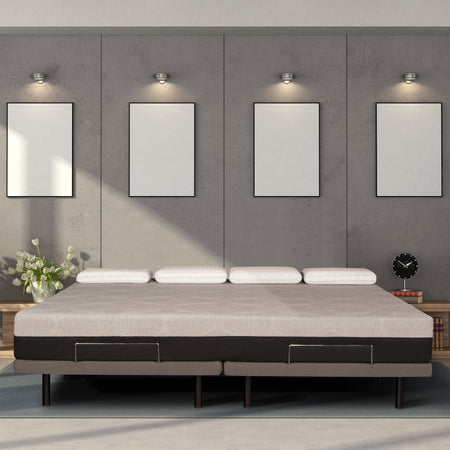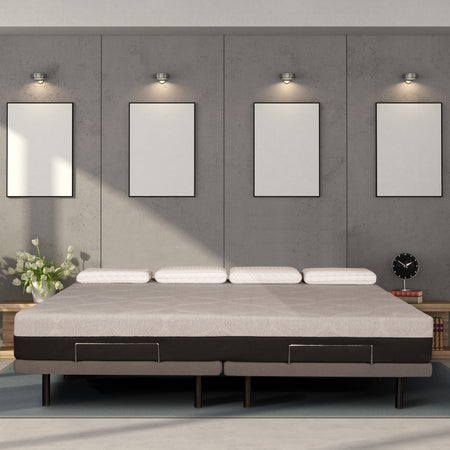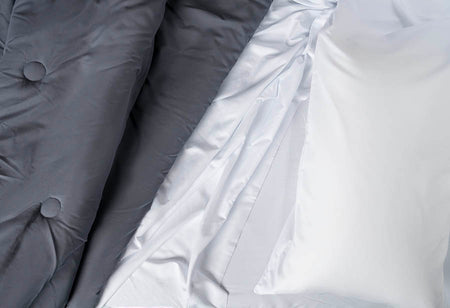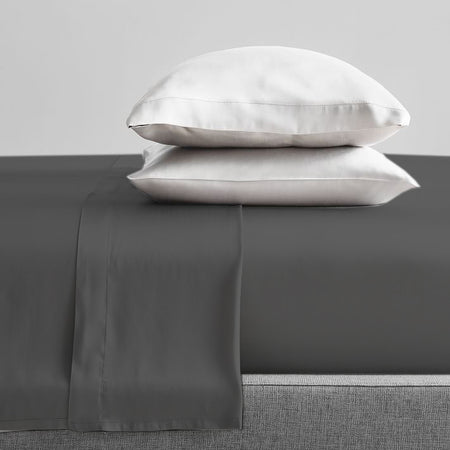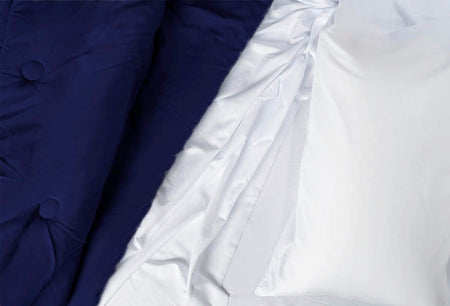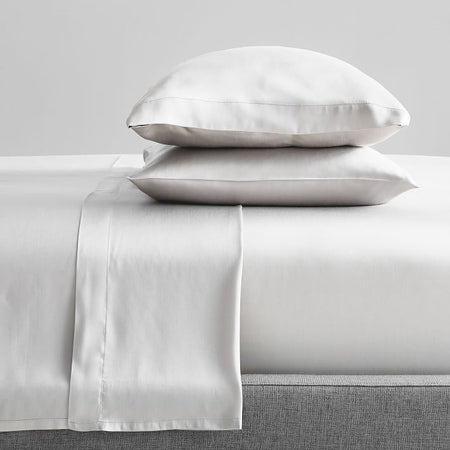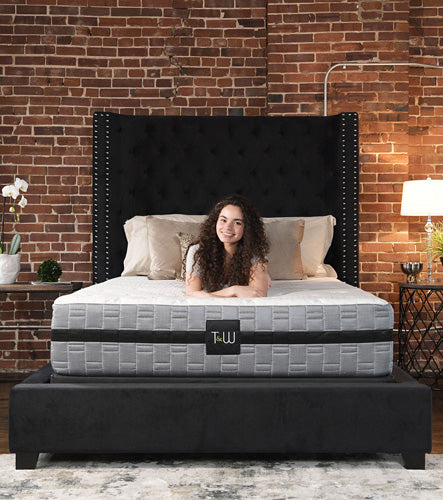Finally, there's a definitive answer. Blue light before bed is bad for sleep. Blue light makes it harder for us to fall asleep, and it affects certain parts of the human brain in such a way as to degrade the quality of our sleep.
We all know how important sleep is to our physical health, ability to handle stress and mental health. So, especially these days, it makes good sense to make small changes to promote healthy sleep. But unfortunately, the effects of blue light diminish our ability to receive the therapeutic benefits of a good night's sleep.

Are you having trouble sleeping?
Ask yourself about your sleep habits here.
- Do you have a consistent bedtime?
- Do you have a sleep routine? A sleep routine is a set of consistent things you do every evening as you approach your bedtime? It can be anything. For example, you may turn down your bed, brush your teeth, prepare a glass of water, etc.
- Do you read in bed from a book, magazine, or digital screen?
- How many hours pass between your last beverage and your regular bedtime?
- How often do you use the restroom at night?
- Do you change sleeping positions at night, and if so, how often?
- What sort of lighting do you have in your bedroom?
- Do you watch tv before bedtime, and if so, how much time passes before bedtime?
- At what temperature do you keep your bedroom?
- Do you have a comfortable bed and pillow?
What's the difference between blue light and regular light?
It'sIt's hard to tell the difference between blue light and regular light by just looking at it. For example, sunlight is the most potent and common source of blue light to which we are exposed. It doesn't look blue at all. Thankfully, most of us go to sleep at night, so this shouldn't pose a problem.
Artificial lights produce a whole spectrum of colors or color temperatures. To the untrained eye, the types of light produced by LEDs, fluorescent bulbs, compact fluorescent bulbs, and incandescent bulbs all look the same.
Most of us aren't used to distinguishing the difference in color temperature. Most of us know that bright lights before bed are bad. However, even a dim light can be a disruptive source of blue light.

Introducing Kelvin – an easy guide to know your light colors
Kelvin color temperature is a scale that helps us determine the appearance of light produced from various sources.
For example, warm white light bulbs tend to produce a light that is slightly yellow. Cool white light blubs tend to be a little bluer. Daylight bulbs produce lights that are significantly bluer.
With all the different types of light sources we have in our lives, "warm white," "cool white," and "daylight" can be very confusing. Take a look at this chart to better understand how Kelvin color temperature can help you adjust your lighting to your needs.

(chart from Westing House Lighting)
Too much blue light disrupts our sleep cycle
Too much blue light before bedtime affects our body's ability to produce melatonin, which affects our ability to sleep. Blue light also produces eye strain. Continued exposure to blue light over time, especially in children, can lead to eye problems and degradation experienced in later years.
Is blue light all bad?
No. Blue light promotes alertness. It helps our memory and our cognitive functions. Blue light can improve mood, and it's an essential component of our circadian rhythm. Blue light is energizing – and this is precisely why you don't want it anywhere near you for at least 30 minutes before you go to bed.
Most common sources of blue light
Smartphones and tablets are the worst culprits. It'sIt's a good thing no one ever looks at a smartphone or tablet in bed, right??? Yup, the worst source of blue light, just as we're trying to go to sleep, isn't the best idea.
In addition to digital devices and digital screens, fluorescent and compact fluorescent bulbs emit blue light – depending on their color temperature. See Kelvin above. Computer monitors and LED televisions also emit blue light.
Protect your eyes and your sleep

Our eyes have no natural way to filter out blue light. In nature, most animals on the planet sleep when the sun goes down along with the level of blue light. Unless you're planning to live by candlelight, there are a few things you can do.
- Limit your overall screen time from electronic devices
- Refrain from any electronic device for at least 20 minutes before bedtime
- Wear blue-light-blocking glasses. These are also known as computer glasses
- Establish a pre-bedtime routine to train your body it's time to go to sleep
- Wind down your activities before bedtime
- Don'tDon't watch any disturbing news or programs before bed
- Review a gratitude list as part of your bedtime routine
- Focus on your breathing when you get into bed
- Limit the amount of liquids you take in during the evening
- Dim the lighting in your home an hour before bedtime
Be picky about your bed and your pillow
A comfortable and supportive mattress and pillow can make a big difference to your overall quality of sleep. Considering how much of our lives we spend sleeping and how important sleep is to our overall health, invest in quality mattresses and pillows. You are worth it.


